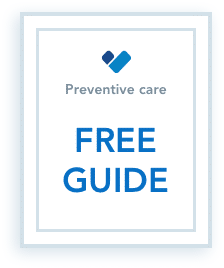What is HIPAA and how does it protect my privacy?
HIPAA does much more than simply protect the privacy of your medical records. It also guarantees you the right to access your medical records and gives you more control over how your personal health information is used and disclosed, which is a major innovation in health care. Here’s a quick guide to everything you need to know about HIPAA.
What is HIPAA and what does it stand for?
HIPAA stands for Health Insurance Portability and Accountability Act. It’s a law that was created in 1996 by the Department of Health and Human Services as a way to protect your personal health information. It is made up of detailed and complex regulations and can be a pretty confusing piece of legislation. Even health care professionals take classes to learn how to manage all the rules correctly. Luckily, you don’t need to learn the fine print but it’s helpful to have a basic understanding of your rights under this law.
Can I access my medical records?
Absolutely. HIPAA gives you the right to access your own medical records which gives you more control over your health and well-being. Plus, you can choose whether you want this information online or in paper form. Just let your provider know that you would like a copy.
One of the only restrictions around this relates to mental health. A psychologist’s notes taken during a counseling session are harder to access – and you may not be able to see them at all. On the flip side, they are also more difficult to access for insurance carriers. Insurance carriers have to receive permission from you first and if you say no they can’t refuse to provide reimbursement for your treatment.
Can I share my own medical records?
Yes. Your medical records belong to you and you’re able to do whatever you want with them. You can keep copies for your own records, email them to a family member, or print them to bring with you when you’re seeing a specialist. You’re also able to authorize any provider to speak with a family member about any aspect of your medical condition.
If I’m unconscious, are my records still protected?
This is a bit tricky. Treatment of acute conditions can be fast-paced and decisions need to be made quickly. So if your friend brings you to the emergency room, the medical staff can share information with that person about your immediate medical condition. They will not; however, allow your friend to read your medical records and they won’t answer questions about your unrelated medical issues. You can also specify people or entities you DO NOT want your records shared with. And your providers have to abide by your wishes unless they receive a subpoena from a court.
What is the HIPAA Security Rule?
In the past, “paperless” medical records did not exist. As technology advanced, and health information became accessible online, a new set of rules needed to exist to protect the privacy of individuals’ health information. The HIPAA security rule is designed to do just that. This rule established a set of standards to protect your information on computer systems while passing between doctors, hospitals, pharmacies and insurance companies.
What’s the HIPAA Privacy Rule?
The Privacy Rule is a little bit different when you compare it to the Security Rule. The Privacy Rule focuses on what exactly is protected and who should be able to access this information. Basically, it protects your medical records and other personal health information and makes sure it only gets within the right hands.
Have additional questions? Our licensed brokers are happy to answer any questions you have around your health insurance options. Call us today at (872) 228-2549.














[…] come up. What are my hospital visitation rights? Who is allowed to visit me in the hospital? Who can make medical decisions for me when I’m unable to? Over the years, laws have been changed and updated so we wanted to highlight […]
Can the VA Hospital in Tampa, Fl. be forced to let my Common Law Wife, or girl friend visit me ?? Or be with me while I am receiving medical care.
A lot of hospitals right now are limiting how many people can visit you due to COVID-19, which they are allowed to do. Typically you are able to choose who can visit you in the hospital. Here’s some more info from pre-COVID times: https://www.healthsherpa.com/blog/hospital-visitation-rights/